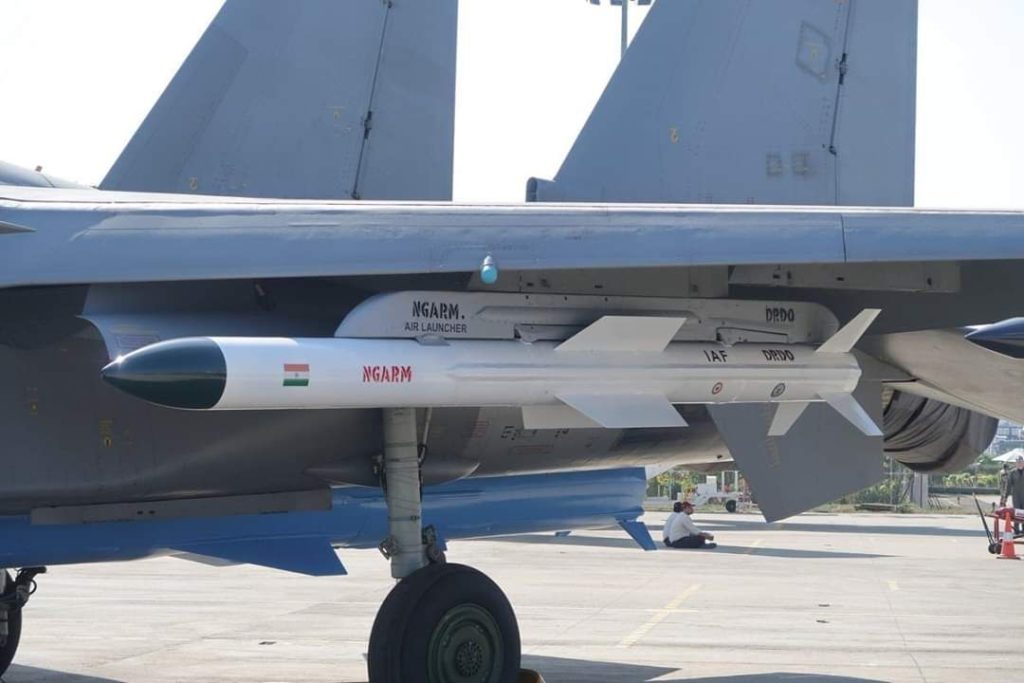Rudram-1
| Name | Rudram - 1 |
|---|---|
| Image |  |
| Country of origin | India (DRDO) |
| Variants | Rudram 1 |
| Type | Next Generation Anti-Radiation Missile (NGARM) |
| Range | 150–200 km |
| Max altitude | 15 km (speculated) |
| Length | 5.5 m |
| Diameter | Not known |
| Fin span | Not known |
| Mass | 600 kg (Approx.) |
| Warhead | 55 kg, Pre-fragmented |
| Detonation Mechanism | Not known |
| Warhead yield | Not known |
| Max Speed | Mach 2 |
| Propulsion | Solid propellant |
| Engine | Dual-pulsed rocket motor |
| Guidance | Mid-course: inertial navigation system and two-way datalink + Passive radar homing Terminal: Millimetre wave (MMW) active radar homing |
| Launch platform | MiG-29UPG, Dassault Mirage 2000, Su-30MKI, Tejas Mk.1/1AHAL Tejas Mk2 (Planned), AMCA (Planned), TEDBF (Planned) |
| Service period | 2022-Present |
| Accuracy | CEP: 10 m |
| Description | The Rudram-1 is India’s first indigenously developed anti-radiation missile (ARM), designed to neutralize enemy radar systems and other electronic warfare assets. Developed by the Defence Research and Development Organisation (DRDO), it is launched from fighter aircraft and can effectively suppress enemy air defenses, clearing the way for friendly aircraft to operate in contested airspace. Rudram-1 is a crucial component of India’s aerial warfare capabilities, significantly enhancing its ability to conduct suppression of enemy air defenses (SEAD) missions. It employs a passive homing seeker to detect and track radar emissions, allowing it to precisely target enemy radar installations. The missile has a significant range, enabling launch from stand-off distances, thus minimizing the risk to the launch aircraft |
| Website | https://www.drdo.gov.in/ |
Disclaimer: This information is based on publicly available sources and should be considered for general knowledge purposes only.